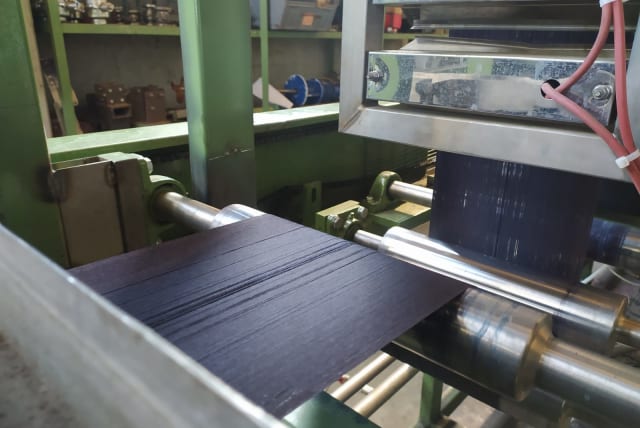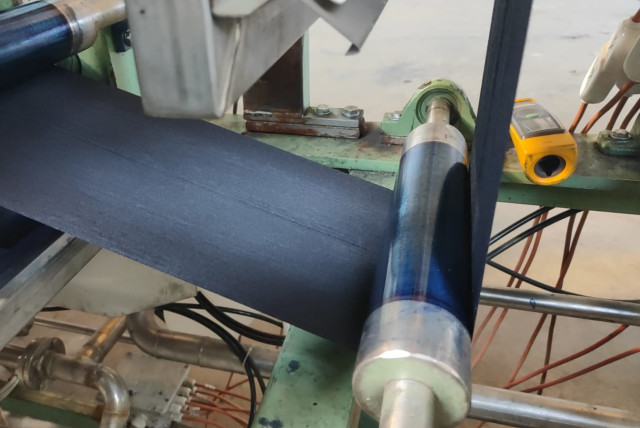Israel’s Sonovia to help Gucci mother co. Kering reduce environmental harm

Israel's Sonovia said its D(y)ENIM indigo yarn dyeing ultrasound technology reduces water and hazardous waste in production by more than 85%.
An Israeli company could be en route to revolutionizing the technology industry by reducing energy, water use and chemical waste.
Israel's Sonovia and Italian denim developer PureDenim recently announced a partnership with French fashion leader Kering, the firm responsible for brands like Gucci and Saint Laurent, to incorporate its chemical-free indigo yarn dyeing technology into its denim production line.
Kering aims to reduce its absolute greenhouse gas emissions by 40%.
Sonovia became known for its ultrasonic antimicrobial textiles during the COVID-19 pandemic when it produced the popular Sonomask.
"This agreement with Kering, one of the most recognized luxury brands in the world, is confirmation that Sonovia's indigo dyeing technology is the future technology for the textile industry," said Sonovia's Chief Business Officer Roy Hirsch. "The agreement will revolutionize the textile industry and increase sustainability in the fashion world."
How does Israel's Sonovia help the environment?
Israel's Sonovia said its D(y)ENIM indigo yarn dyeing ultrasound technology reduces water and hazardous waste in production by more than 85%, from as many as 20 baths and 60,000 liters of water to as few as three. Moreover, according to Hirsch, the process reduces energy consumption by more than 50% and eliminates contaminating chemicals, such as hydrosulfite, that are known to be hazardous to the environment.
The indigo dye used by the global denim industry is estimated to reach $76.1 billion by 2026, with jeans being among the world's most widely worn clothing items. Sonovia and PureDenim have been working together since early 2022 on developing and scaling up the D(y)ENIM technology.
Hirsch said that the company is expected to have its first fully industrial installation in Milan by October and be commercially ready in 2024.
The Environment and Climate Change portal is produced in cooperation with the Goldman Sonnenfeldt School of Sustainability and Climate Change at Ben-Gurion University of the Negev. The Jerusalem Post maintains all editorial decisions related to the content.
Jerusalem Post Store
`; document.getElementById("linkPremium").innerHTML = cont; var divWithLink = document.getElementById("premium-link"); if (divWithLink !== null && divWithLink !== 'undefined') { divWithLink.style.border = "solid 1px #cb0f3e"; divWithLink.style.textAlign = "center"; divWithLink.style.marginBottom = "15px"; divWithLink.style.marginTop = "15px"; divWithLink.style.width = "100%"; divWithLink.style.backgroundColor = "#122952"; divWithLink.style.color = "#ffffff"; divWithLink.style.lineHeight = "1.5"; } } (function (v, i) { });

